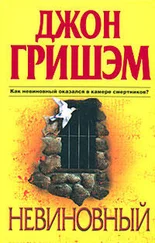His mother, Beatrice, had no education. His sister, Angelina, was being taught at home by their father. How, then, was it possible for some young women in South Sudan to make it to college? He rather liked the idea. He had watched several college games on television and had always been surprised at the number of female students screaming in the stands. Another reason to play basketball in America.
In a reading area, he flipped through the Juba Monitor, one of two dailies in the country, neither of which made it to Lotta. He found a copy of the other one, The Citizen, and reread the same news. As he was finishing his juice, three college boys came in and looked him over, then ignored him. They chatted away in their big-city English. Their clothes were nicer; their shirts had real collars. Samuel knew it was time to leave.
He found the gym and the front doors were locked. As he walked away, he saw a janitor exit from a side door. He waited a moment until the janitor was gone, then tried the door. It opened and he walked into the same locker room the team had been using. The courts were dark but the early sun was flooding one end of the building. Samuel found a bag of balls and, without even a hint of stretching, began shooting.
An hour later, Ecko Lam entered through the same side door, and as he walked through the locker room he heard the familiar sound of a bouncing ball. He eased into the shadows and peeked around the bleachers. Samuel was glistening with sweat as he fired away from twenty feet. He missed, sprinted after the ball, dribbled between his legs, behind his back, feinted right then left all the way to mid-court where he turned around, took a few quick steps, and fired again. Another miss. And another. The form was better and he was trying mightily to break old habits, but the elbow was still straying too far. And, for the moment Ecko really didn’t care. The gorgeous part of his jump shot was the point of delivery. Off the dribble, Samuel pulled up and in a split second rocketed upward and flicked the ball away at a height few other guards could match.
If only he could hit.
After a few minutes, Ecko strode onto the court and said good morning.
“Hello, Coach,” Samuel said, flinging sweat from his forehead. It was not yet 8 a.m. and the gym was thick with humidity.
“You have trouble sleeping?” Ecko asked.
“No sir. Well, yes, I guess. I wanted to walk around and see the campus, and I found a door back there that was unlocked.”
“I watched your last fifteen shots, Samuel. You missed twelve of them. And you were as wide open as you’ll ever get.”
“Yes sir. It will take some work, Coach.”
Ecko smiled and said, “The scouting report says your mother is six feet tall. Is that right?”
“Yes sir. All my people are tall.”
“When do you turn eighteen?”
“August eleven.”
“You could try out next year, Samuel.”
“Thank you, Coach. Does this mean I’m done for this year?”
“No. You want to shoot some more?”
“Yes sir.”
“Okay. Go to the free throw line. Keep both feet on the floor. We know you can jump. Take the ball higher. Aim your elbow directly at the rim and deliver it slowly. When you make ten in a row, come find me.”
“Yes sir.”
The first drill was a shooting contest, held on two courts. Every player took 20 shots from the free throw line, and the hits and misses were recorded. The top four were then put in a shootout, complete with banter, catcalls, cheap shots, laughter at misses, all manner of verbal abuse. “This pressure is nothing,” Ecko kept saying as he offered up his pointed observations. “Imagine you’re in the Final Four with the game on the line and a hundred million people watching, including everyone here in South Sudan. This pressure is nothing.”
Alek Garang shot 90 percent and won going away. Samuel struggled to hit half of his shots.
They moved back five feet to the college arc — 20 feet, nine inches — and started with the guards. Each took 20 open shots in a row. Garang hit 11; Samuel only 4. The forwards went next and Ecko was not pleased with their percentages. The best hit only a third of his shots. Because every big man fancies himself a long-range gunner, Ecko humored the centers with 10 shots each. Few found the bottom of the net.
He broke them down into teams of three for half-court scrimmages. His tone changed dramatically as he stopped smiling, yelled more, whistled more, found far more deficiencies to point out. The gym became tense as Ecko went on the warpath. A bad shot got a whistle and harsh rebuke.
Samuel rested and watched from the bleachers. It had been a terrible morning and things were not improving. His shooting was pathetic, so bad that in the scrimmages he hesitated to take a shot. Hard to score when you don’t shoot. He had guarded Alek Garang for 15 minutes and the slick one had scored almost at will. Ecko yelled and whistled and seemed irritated by Samuel’s presence on the court. By noon, Samuel knew he was finished.
After a break and some cold pizza, Ecko divided them into groups of four for half an hour of incredibly dull drills — ball screens, pick-and-rolls, and such. One of the assistant coaches led four players to the locker room where a chalkboard was wiped clean and apparently ready for Xs and Os. Instead, Ecko appeared and addressed them by saying, “Look, men, there’s no easy way to do this. It’s by far the worst part of coaching, but I have no choice. You are great players with great futures, but I cannot include you on this trip.”
They slumped in their chairs and looked at the floor.
Ecko continued, “We have some money for the bus rides. I wish you the best. Be careful out there.” Though he had done it before, it was still heartbreaking. The boys would travel by bus and on foot back to their homes with their magnificent dreams broken. They would continue to play, and to grow, but he knew that none of the four would play in America. And without that chance, their futures were bleak.
They were too stunned to speak.
Ecko said, “Look me in the eyes.” All four eventually did.
He said, “I wish I could take all twenty, but I can’t. I’m sorry.”
Peter Nyamal slowly stood and wiped his cheeks with the back of a hand. He said, “Thank you, Coach, for the opportunity.”
They shook hands and embraced. Ecko said, “I wish you the best, I really do, and I hope to see you again.”
The other three stood, proudly, and embraced their coach. An assistant led them through the side door and walked them back to the dorm. They quickly gathered their things and headed for the bus station.
Two hours later, the same scene was repeated as Ecko said goodbye to four more. He hated this part of his job but had learned that it was best to get it over with.
As the team enjoyed a long break back at the dorm, Ecko and his two assistants debated the last two cuts. He wanted to break camp with four guards, four forwards, and two centers, but the two bigs were lacking. The team would find help in the U.S. where a high school All-American named Dak Marial would join the team. Dak was a rising senior at a fancy California prep school and had already committed to UCLA. Most rating experts put him in the top three prospects in the country. He had fled South Sudan with relatives when he was a boy.
Ecko did not want to take either of his two centers, but finally settled on one. Neither assistant wanted to include Samuel, who, so far that weekend, had looked terrible on offense and mediocre on defense. Both rated him as the third best guard. One referred to him as a “nonshooting guard.” But Ecko loved his speed, quickness, and leap, and he was convinced that the kid would put in the hours necessary to become a marksman.
Читать дальше












